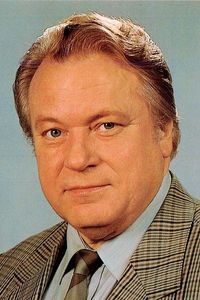Günter Strack, a renowned actor, made his mark on the world on June 4, 1929, in the vibrant city of Darmstadt, Germany, a place that would forever be etched in his memory.
He would go on to leave an indelible mark on the world of acting, with his most notable performances being in the 1966 film "Torn Curtain", the 1981 television series "A Case for Two", and the 1994 production "Der König".
Throughout his life, Günter Strack was deeply devoted to his loving wife, Lore Strack, with whom he shared a lifelong bond.
However, Günter Strack's remarkable journey on this earth came to an end on January 18, 1999, in the picturesque town of Münchsteinach, nestled in the heart of Bavaria, Germany.

















